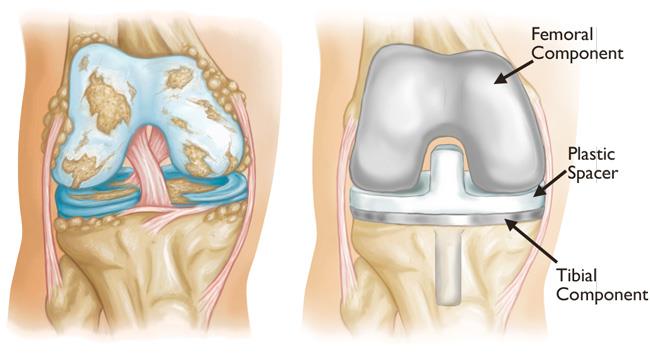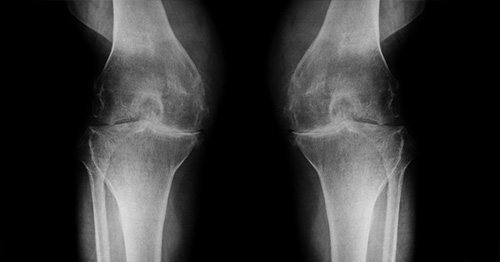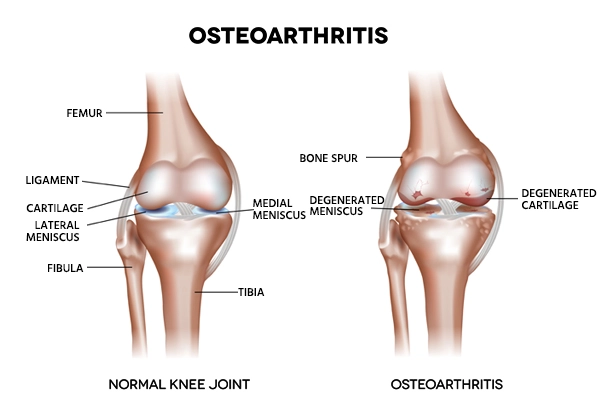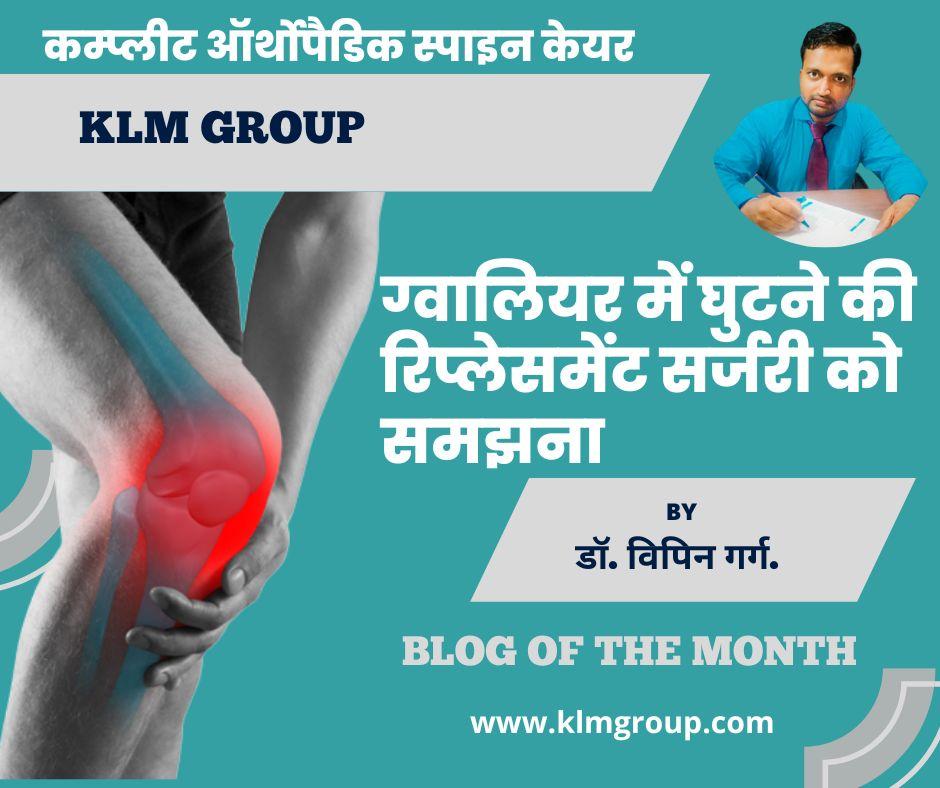Introduction:
Knee replacement surgery, also known as knee arthroplasty, is a surgical procedure aimed at alleviating chronic pain, improving mobility, and enhancing the quality of life for individuals suffering from severe knee joint conditions. This transformative surgery has helped millions of people regain their independence and resume their daily activities. In this blog, we will explore the intricacies of knee replacement surgery, its benefits, the surgical process, postoperative recovery, and the impact it can have on an individual’s overall well-being.

Understanding Knee Joint Degeneration:
The knee joint is one of the most crucial weight-bearing joints in the human body, allowing us to walk, run, and perform various physical activities. However, factors such as aging, osteoarthritis, rheumatoid arthritis, post-traumatic injury, or other medical conditions can lead to the gradual deterioration of the knee joint. This degeneration causes chronic pain, stiffness, swelling, and a significant decline in mobility, adversely affecting an individual’s overall quality of life. Knee replacement surgery offers a viable solution for individuals who have exhausted non-surgical treatments and are seeking long-term pain relief and improved functionality.
Read more: Could Your Foot Pain Be Caused by a Problem in Your Spine?

Benefits of Knee Replacement Surgery:
Pain Relief: The primary goal of knee replacement surgery is to relieve chronic knee pain caused by joint degeneration. By replacing the damaged joint surfaces with artificial implants, the surgery eliminates the source of pain and significantly improves the patient’s comfort.
Read More: How To Find The Best Spine Doctor In Gwalior
Restored Mobility: Restricted mobility due to a deteriorated knee joint can greatly impact one’s ability to perform daily activities, such as walking, climbing stairs, or participating in physical exercise. Knee replacement surgery restores joint function, allowing patients to regain mobility, engage in activities they previously avoided, and improve their overall quality of life.

Improved Joint Function: Knee replacement surgery not only alleviates pain but also improves joint function. The artificial knee joint allows for smoother movement, stability, and enhanced range of motion, enabling patients to perform activities with greater ease and confidence.
The Knee Replacement Procedure:
Preoperative Evaluation: Before the surgery, the patient undergoes a thorough medical evaluation, including imaging tests such as X-rays and MRIs, to assess the condition of the knee joint. The surgeon evaluates the patient’s overall health and discusses the procedure, potential risks, and expected outcomes.
Anesthesia: Knee replacement surgery is typically performed under general anesthesia or regional anesthesia, depending on the patient’s health and the surgeon’s preference. Anesthesia ensures that the patient remains comfortable and pain-free throughout the procedure.
Read More: How a Patient Can Improve Their Outcome in Surgery

Surgical Process: The surgeon makes an incision over the knee joint, carefully removes the damaged bone and cartilage, and replaces them with artificial implants. The implants may consist of metal alloy components for the femur and tibia, with a plastic spacer in between to facilitate smooth movement.
Postoperative Care and Recovery: After the surgery, the patient is closely monitored in a recovery room before being transferred to a hospital room. Pain management techniques and physical therapy are employed to aid in the recovery process. Physical therapy exercises help regain strength, flexibility, and mobility, facilitating a smooth recovery and rehabilitation.
Recovering from Knee Replacement Surgery:
Recovery from knee replacement surgery involves a period of hospitalization, followed by a comprehensive rehabilitation program. The length of the hospital stay varies, but patients are often encouraged to start moving and bear weight on the new knee joint soon after the surgery, initially with the assistance of crutches or a walker. Physical therapy plays a crucial role in regaining strength, flexibility, and proper joint function. The rehabilitation process continues after discharge and may extend for several weeks or months, depending on individual progress.
It is essential to follow the surgeon’s post-operative instructions, adhere to prescribed medications, and attend all scheduled follow-up appointments. Gradual resumption of daily activities, under the guidance of healthcare professionals, allows for a smooth transition to normal life.

Life After Knee Replacement Surgery:
Knee replacement surgery can be life-changing, offering significant pain relief, improved mobility, and the ability to resume activities that were once challenging or impossible. Many individuals experience increased independence, restored quality of life, and improved emotional well-being as they regain the ability to perform daily tasks and engage in hobbies, sports, and social activities.
Conclusion:
Knee replacement surgery is a highly effective procedure that offers relief to individuals suffering from debilitating knee joint conditions. By eliminating pain, improving mobility, and enhancing overall functionality, it has the potential to significantly improve an individual’s quality of life. If you are experiencing chronic knee pain or limited mobility, consult with an orthopedic surgeon to determine whether knee replacement surgery is a suitable option for you. The decision should be made in collaboration with your healthcare provider, taking into account your specific condition, lifestyle, and overall health.
Knee Replacement Surgery In Gwalior.
The KLM Group Hospital, led by Chief Surgeon Dr. Vipin Garg, is a premier healthcare facility known for its excellence in knee replacement surgery in Gwalior. With a steadfast dedication to delivering the highest quality of care, the hospital boasts cutting-edge technology, state-of-the-art infrastructure, and a highly skilled medical team. Dr. Vipin Garg, a renowned expert in knee replacement surgery, ensures that patients receive personalized treatment plans and compassionate care throughout their surgical journey.
With a focus on optimal outcomes and patient satisfaction, the KLM Group Hospital offers the best knee replacement surgery in Gwalior, aiming to restore mobility, alleviate pain, and enhance the overall quality of life for individuals seeking relief from knee joint ailments.
Address: 12, Saraswati Nagar, University Road, Near Silver Estate, Thatipur, Gwalior 474006 Mob: 7804826825 Ph: 0751-4000721 Website: www.klmgroup.org Email: info@klmgroup.org / klmspineclinic.in@gmail.com powered by Argusdna.

